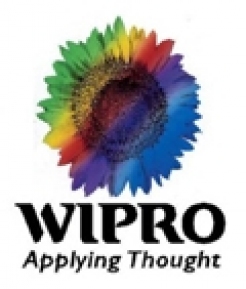
However, the economic uncertainty and slowdown in the European and US markets have impacted Wipro’s revenue growth as clients from these markets contribute over 80 per cent to its overall revenues. Telecom equipment vendors in these markets have considerably reduced their expenditure on research and development (R&D) activities. Consequently, Wipro has not been able to garner substantial business on the product re-engineering front. This was reflected in the segment’s contribution to total IT revenues, which declined from 17 per cent in 2011 to 15.7 per cent in 2012.
As a result, Wipro has decided to shift its focus from offering product re-engineering services to telecom vendors to providing telecom analytics and mobile broadband-related services to operators. In this regard, the company has restructured its telecom vertical, following which there has been an increased focus on offerings in domains such as mobile broadband, telecom analytics, customer experience management, system integration, network optimisation, as well as on making hardware interoperable across platforms.
In 2010, the company integrated its telecom and media businesses into a single global vertical, which caters to telecom service providers, telecom equipment manufacturers and media companies. This vertical has an employee base of over 10,000. Revenues from the vertical were reported at over $1 billion during 2011-12.
A strategic shift
The restructuring of Wipro’s telecom vertical comes at a time when the business of several large telecom vendors is facing revenue pressure. The company has vendors such as Ericsson and Nokia Siemens Networks as its clients. Due to slow sector growth, most of these vendors are reported to have reduced their focus on existing projects. In addition, since the current roll-out of telecom networks is slow, vendors have not made significant commitments to future projects.
According to Gartner’s estimates, the global telecom equipment market will grow at 6.9 per cent during 2012, lower than the 7.2 per cent growth recorded during 2011. The expenditure in the telecom equipment space will increase marginally from $442 billion in 2011 to $472 billion in 2012. Vendors have become very critical of their investments in R&D and are ensuring that every investment in the area pays off.
That said, the launch of 3G services has provided new opportunities for Wipro as service providers are continuously focusing on factors such as time-to-market and service differentiation to increase their reach. The company is also building long-term technology-enabled small cells, which are mini base stations and can be used on electric poles or lamp posts. In India, Wipro has telecom clients such as Bharti Airtel, Vodafone India and Aircel. The company’s deal with Uninor (a joint venture between Norway-based Telenor and Unitech) is currently on hold, following the operator’s licence cancellation by the Supreme Court in February 2012.
Background and operations
From being a vegetable oil manufacturer in 1945 to becoming a leading global IT service provider, Wipro has come a long way. The Bengaluru-headquartered company entered the IT industry in the 1980s with the manufacture and sale of mini-computers. In the 1990s, the company started offering software services to global clients. Today, it provides IT, outsourced R&D, infrastructure, business process and business consulting services to over 900 clients across 54 countries. Currently, Wipro Technologies is reported to be pursuing over 50 contracts worth $3 billion.
According to Zinnov Management Consulting’s Global R&D Service Providers Rating 2012 study, Wipro, along with HCL Technologies, is leading in terms of enterprise R&D and product engineering services. The study has also highlighted the trend of service providers making significant investments in centres of excellence and customer labs to build expertise and get involved with the product development life cycle. Wipro, HCL, Boeing and the Indian Institute of Science have formed the Aerospace Network Research Consortium. It has also partnered with Belgium-based IMEC for establishing a nanotechnology research lab, Applied Research in Intelligent Systems Engineering. In fact, the industry is witnessing an increasing trend of re-organisation of services and verticals.
Going forward
With the introduction of next-generation technologies like 3G and 4G, a shift in focus towards mobile broadband and related services is likely to benefit Wipro in securing business and improving the telecom vertical’s revenue contribution to the company’s IT revenues.